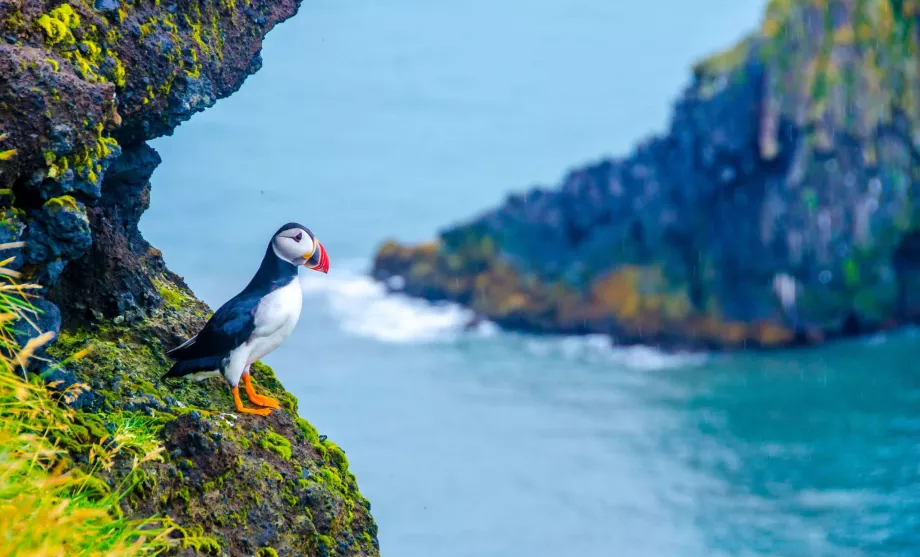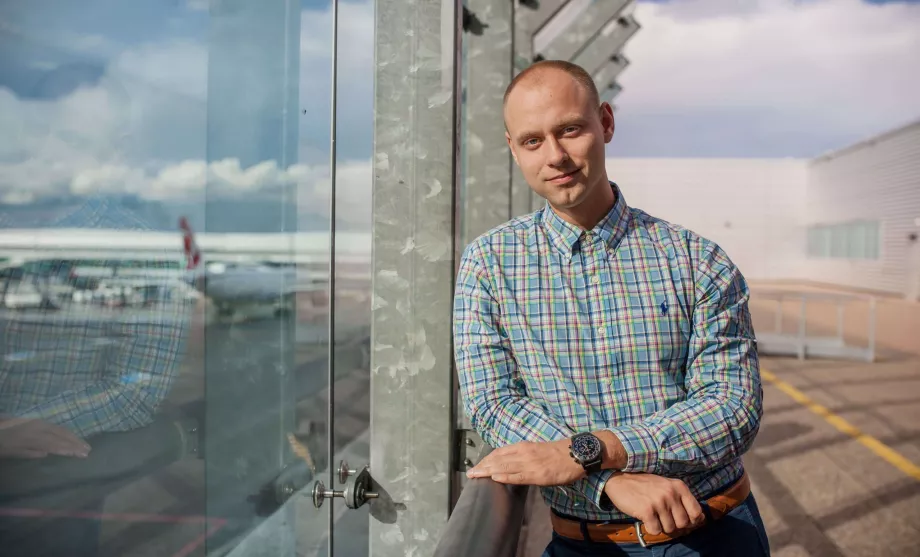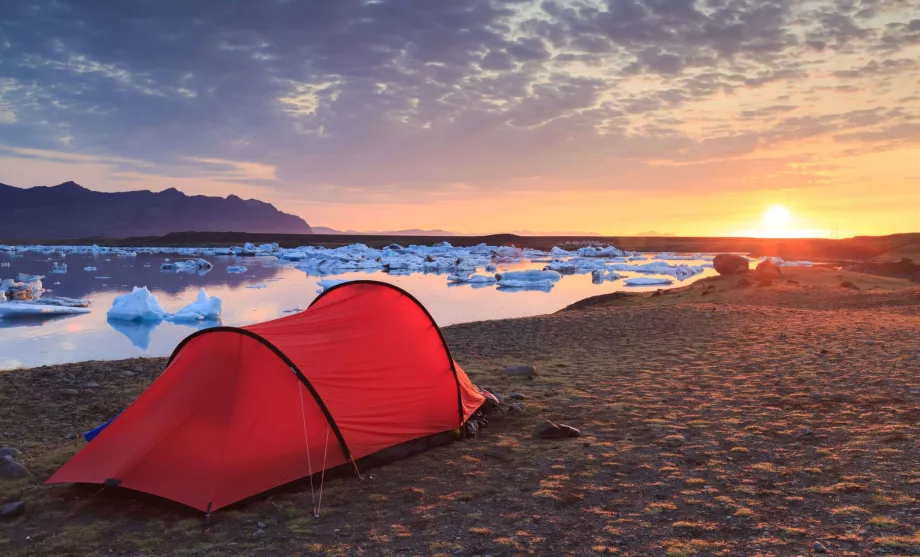Currency and prices in Iceland

What currency do I pay with in Iceland? How much do goods cost in a regular supermarket and how much in a restaurant? And how much does a week's stay on the island cost? Find out in this chapter.
Icelandic krona (ISK)
The currency of Iceland is the Icelandic krone, which is called the króna in Icelandic. The one hundredth is the eyrir (plural aurar), but it doesn't actually circulate.
Coins exist in denominations of 1, 10, 50 and 100 and banknotes in denominations of 500, 1000, 2000, 5000 and 10,000. The obverse side of the coins depicts typical Icelandic animals, while the banknotes feature prominent personalities.
- International currency code: ISK (numerical code 352)
- Currency symbol: kr
In this guide, although we use euros for some chapters (accommodation, car rental) for clarity, the Icelandic krone is used exclusively in Iceland for everyday payments.
Search for accommodation in Iceland
Currency exchange and card payments
Paying by card is the ideal solution in Iceland.
Iceland is one of the countries where coins and banknotes have been replaced by credit cards in almost all places. So it's perfectly normal to use your card to pay on a bus or at a campsite in the middle of the wilderness.
You won't find many exchange offices outside Iceland that will sell you Icelandic kroner. Don't worry about it, because there's an ATM on every corner in Iceland. But as we write above, it's quite likely that you won't come across any cash at all during your stay, Iceland is simply a contactless country.
How much does what cost - prices in Iceland
Iceland is known for its high prices and is one of the most expensive countries in the world.
You have to expect to pay roughly 2.5 times more for supermarket food than in Western Europe. Prices are comparable to Hawaii or Caribbean destinations.
In a restaurant you will pay about 3 times more and even petrol has some of the highest prices in Europe.
Example prices in Iceland
How much does basic food, tourist attractions or transport cost in Iceland? Check out this price guide.
Accommodation in a double room (prices per night):
- Cheap hotel with shared bathroom - from 73 eur
- Local 3* hotel - from 0 eur 0 eur
- International 4* hotel - from 220 eur
- Search for accommodation in Iceland
Restaurant food:
- A hot main meal in a regular restaurant - 2 500 isk
- Menu in a fast-food restaurant - 2 300 isk
- Espresso or Cappuccino - 640 isk
- Water 0.33 l - 290 isk (however, free tap water is normally offered)
- Fanta/Coca Cola/Sprite 0,5 l - 500 isk
- Draft beer - 1 300 isk
Supermarket food:
- Water 1.5l - 290 isk
- Packed baguette - 550 isk
- Coca Cola (and other sodas) - 350 isk
- Milk 1l - 215 isk
- Apples - 420 isk / kg
- Bananas - 305 isk / kg
- Rice - 435 isk / kg
- Chicken - 2 500 isk / kg
- Canned fish - 730 isk
- Fish fillet - 3 500 isk / kg
- Cheese in a tube - 350 isk
Shipping:
- Public transport ticket - around 500 isk in cities; intercity transport is expensive and tickets for distances around 100 km cost around 4 000 isk
- Price of petrol 1 litre - 300 isk to 350 isk
- Car rental per day - from 9 500 isk depending on the season of the rental
- Compare car rental prices at Keflavík airport
Alcohol and cigarettes:
- Bottle of wine in the shop - 2 700 isk
- A can of local beer - 435 isk
- Cocktails at the bar - 3 000 isk
- A pack of cigarettes - 1 600 isk
Prices are approximate and vary depending on the city and type of shop.
Where is the cheapest place to shop?
Iceland is a popular country for camping or staying in apartments equipped with a kitchen.
In Iceland, you'll come across regular supermarkets in all towns of at least some significance over 1,000 inhabitants. The cheapest discount chains include the following:
- Bónus
- Nettó
- Krónan
The supermarket network is dense throughout Iceland. The larger supermarkets are open until 21:00. In smaller towns, expect closing times around 18:00.
Shops are open on weekdays and weekends.
Avoid buying groceries at petrol stations, where prices are 2-3 times higher than in supermarkets.
Tipping and bargaining
Leaving tips in restaurants and bars is not very common in Iceland. This is because staff salaries are quite high and any service charges are already included in the price.
If you still want to leave a tip, you may find that it will be politely refused or greeted with a smile.
Bargaining has no tradition in Iceland. If you try to haggle with an Icelandic, you will only put them in an awkward position. Prices in all shops and services are fixed.
How to save money?
Iceland is an expensive country, but there are still ways to save quite a lot of money.
You can save the most on accommodation if you stay in hostels or campsites, of which there are plenty in Iceland.
If you don't mind hitchhiking, Iceland is the perfect country to transport yourself this way. If you're travelling with more than 2 people, it's definitely worth renting a car.
You will definitely save more on all items if you travel to Iceland during the low season, i.e. from about September to June. Accommodation prices in the low season can be up to half the price.
The prices of food in restaurants are not very friendly. Eat at fast food restaurants instead. The cheapest option is to buy your ingredients from Nettó, Bónus or Krónan supermarkets and start cooking.
Avoid alcohol. Until 1989 there was a partial ban on alcohol and today all alcoholic drinks are heavily taxed. So buying a few cans of beer in a shop can take a significant hit to your budget.
Any questions left?
If you have any questions or comments about the article...


